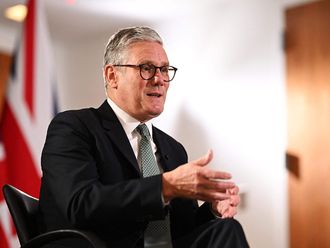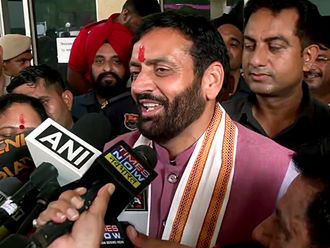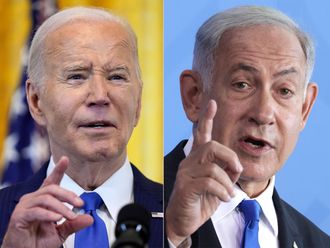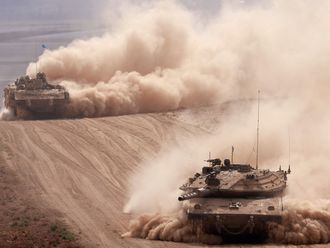
President Barack Obama has promised to begin withdrawing US troops from Afghanistan in July 2011. But Afghan President Hamid Karzai has said his government won't be ready to take over the main burden of defending the country against Taliban insurgents until 2014 — a date US officials are also increasingly talking about.
Does that mean adding three years to the US clock? Not exactly.
Last year, when Obama decided to grant his military commanders' request for more troops in Afghanistan, he added a proviso to protect himself from the danger of endless, gradual escalation. This would be the last increase, he warned, and the added troops would be withdrawn beginning in July.
Predictably, the withdrawal date instantly became the focus of attention in both the United States and Afghanistan: Did it mean the Americans would abandon the battlefield, and that the Taliban merely had to wait them out before marching back to Kabul?
Obama and his lieutenants have said that is not the case, but they have given conflicting signals about what exactly the date signified. Vice-President Joe Biden promised restive Democrats that there would be significant withdrawals; Defence Secretary Robert M. Gates insisted the withdrawals were likely to be modest. And administration officials struggled to explain what would happen after July 2011, partly because they hadn't figured it out themselves.
"There was a lot of confusion out there," a White House official acknowledged recently.
To the rescue, almost accidentally, came Karzai, who declared at his inauguration a year ago that Afghanistan would assume primary control over security within five years — that is, by the end of his term in 2014.
In July, an international summit in Kabul endorsed the goal. And at a Nato meeting in Lisbon last week, General David H. Petraeus will unveil a more detailed timetable leading to 2014, providing — its authors hope — a reassuring framework under which European countries will agree to send more trainers and advisors to Afghanistan for the next several years.
In a broader sense, the 2014 date helps focus the debate on Afghanistan on something more important than the size of the drawdown that begins next July, which will be quite modest initially, if Gates and Petraeus have their way. The main goal of the war, after all, is to get Afghanistan to a point where much-improved Afghan security forces led by a much-improved government (neither of which exist yet) can take over.
"We're not getting out," Gates reaffirmed recently. "We're talking about probably a years-long process."
The Obama administration is still heading towards a major review of the strategy next year. But if Gates and Petraeus can persuade Obama to accept the premise that 2014 is the right target, he may be less inclined to embark on a major de-escalation in 2011. Officials aren't too specific even about what a transfer of responsibility in 2014 would look like. They don't promise, for example, that it would mean an end to the US combat mission in Afghanistan, as was accomplished this year in Iraq. And the date is a goal, not a deadline written in stone.
But they say the goal seems realistic, in part because of recent progress on at least two fronts — although they warn that the advances are mostly fragmentary, not decisive.
Many of the Taliban routed in Kandahar, for example, are believed to have fled to neighbouring Pakistan to regroup.
And the long US struggle to improve the effectiveness of Karzai's government and reduce the corruption that saps its public support has been largely unsuccessful. It's a sign of the importance Petraeus attaches to the issue that he has assigned one of the most accomplished American combat commanders of the Iraq war, Brigadier General H.R. McMaster, to lead a new anti-corruption campaign.
The White House has begun work on its year-end review of the results of the troop escalation, but officials said recently that it was not going to lead to a basic change in direction.
Instead, the December review will produce a list of questions for Obama to consider as he approaches a decision on how many troops to withdraw in the second half of 2011.
If Obama hopes to maintain public support for a war that's already unpopular — 58 per cent of Americans in one recent poll said they opposed it — he should seize the opportunity to talk about more than withdrawals — and explain what he thinks the US role in Afghanistan should be three years from now, in 2014.












